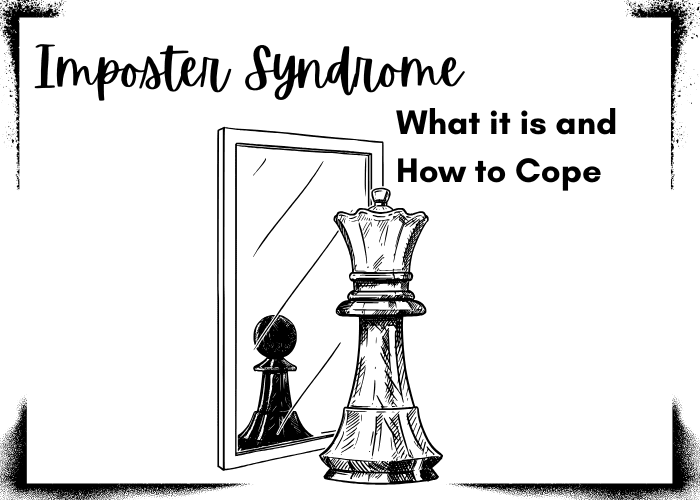
Something common that a lot of people experience is something known as imposter syndrome. This was originally coined by research psychologists who studied these feelings among high-achieving women and it was originally called “imposter phenomenon”. While this is a common experience, it can also be something that can become severe enough for some people that it can hold them back.
What is Imposter Syndrome?
Imposter phenomenon, or syndrome, is when someone experiences feelings of self-doubt about their performance or knowledge. This most often happens in academic and work settings. These feelings often come in the form of feeling like you don’t belong somewhere, don’t know enough, or are not qualified to be there.
While it was originally found in research involving high-achieving women, it is something that can happen to someone of any gender in any setting.
What Does It Look Like?
Imposter syndrome often looks like someone questioning their place or their skills. It can look like thinking that luck has been attributable to everything they have achieved. Often, individuals are scared someone will “find them out” and realize that they “really aren’t the right fit”. This can happen in relationships (romantic or platonic), at work, at school, etc.
Sometimes, it can be frustration at not getting something right the first time. Or not knowing the answers to everything in your field. The truth is that you’re not going to know every single answer to everything in your field. You also won’t succeed at everything you try for the first time. And this is how imposter syndrome can really start to eat away at someone’s self-esteem and confidence.
Where Does It Come From?
There are a lot of things that can contribute to feeling this way. The important thing to remember is that it is incredibly common. Sometimes it can be tied to the way we were raised, especially if our parents put high value on achievement. Other times it can be related to past failures. The important thing to remember is that you’re not alone in feeling this way.
How Can I Stop Experiencing Imposter Syndrome?
Talking to others openly about how you feel can be a good start. You’d be surprised to find out how other people you look up to or feel have everything together may be feeling the same way you do now. Or maybe they did in the past. It can also help to really listen to what they have to say about your performance or skills in a neutral way. Try to imagine them talking about someone else and evaluate what they say from that angle. You may be able to more realistically evaluate your own skills going forward if you practice this regularly.
It’s also important to really try and untangle why you’re feeling so hard on yourself about your skills. Try to figure out where this comes from and what exactly triggers these feelings in you. It could be that if you find a pattern, you may be more successful in stopping these negative thoughts in the future.
Also, learn how to take compliments. Learn to not deflect them or try to play down your efforts and achievements. “Thank you” is a good response to a compliment. “I appreciate you noticing how hard I worked on this” is another. Do this more and more and it should get easier.
What if That Doesn’t Work?
If imposter syndrome is something that is really seriously hindering you, then it’s possible these steps won’t work. You may need to seek counseling from a therapist to help you work on some cognitive skills to tackle this problem. The important thing to remember, however, is that it is possible to free yourself from these negative thoughts and the spiral they can often trigger.



